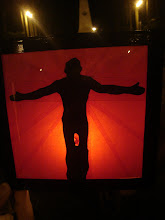--------------------------------------------------------------------------
PCARRD advocates technology transfer
Cognizant of the need for a strengthened and institutionalized technology transfer policy framework, PCARRD is currently at the forefront in the inter-agency and multi-sectoral advocacy for the enactment of the Technology Transfer Bill pending before the Committee on Science and Technology at the House of Representatives and the Committee on Trade and Commerce at the Senate, respectively.
House Bill (HB) 3270, otherwise known as “An Act Providing the Framework and Support System for the Ownership, Management, Use, and Commercialization of Intellectual Property Rights Derived from R&D Funded by Government” or the Technology Transfer Act of 2008 was conceived to bring in more technologies accessible to end-users through a clear and sound policy legislation on technology transfer and adoption, especially those derived from government-funded research and development initiatives. Proponents of the proposed bill are Rep. Joseph Emilio Abaya and Sen. Edgardo Angara, Chairmen of the S&T Committees in both Houses.
This policy advocacy initiative of DOST cropped up in 2006 upon request of Sec. Estrella F. Alabastro for the drafting of a technology transfer policy framework that would serve as basis of policy makers in formulating a technology transfer policy and would resemble that of the Bayh Dole Act in the US. This further recognizes that efficiency in the area of technology transfer has now become a benchmark in scaling the technological readiness and competitiveness of countries, in line of the tremendous global innovation efforts.
In the Philippines, however, an apparent scenario in our innovation system has shown weakness in the process of transferring and commercializing these innovations across clients and intended audiences. Moreover, the country also has yet to reach a status of technological readiness and innovative capacity relative to its neighbors.
This is evident in the recent Global Competitiveness Report (2006-2007) showing the country places 71st among 125 countries in terms of technological readiness and ability to adopt technologies from different sources. Thus, it hinders utilization of research and development (R&D) results to its full potential, notwithstanding the fact that key activities of this kind emanate from government institutions. A favorable atmosphere along policy lines would then be instrumental to averting this gap.
HB 3270 primarily provides for a national backbone and framework that would push technology generation and application to its maximum potential through efficient and coordinated transfer capability around the country and provide for opportunities and regulation thereof. The proposed bill likewise aims to promote commercialization of intellectual property rights resulting from R&D across sectors. It underscores the relative advantage of technology transfer as a driving force for innovation competitiveness in the region.
The enactment of this proposed bill into law would ultimately pave the way for increased revenue generation and benefits on R&D institutions; maximize researches, which otherwise remain unexploited, to generate jobs; avail of more research collaborations between private and public sectors; and secure added quality and reputation to the institution.
Early on, nationwide multi-sectoral consultations on the proposed bill have been conducted to consider inputs from local counterparts. Concerned government agencies were also conferred to scrutinize the bill. Alongside, a massive information, education, and education campaign and media publicity was carried out to ensure broad awareness and support.
Since its formal filing in Congress late last year, the proposed bill has already gone a long way. A series of public hearings and inquiries into the bill have been done at the House Committee level where Rep. Abaya also seats as Chairman. In the last three months, marathon workshops of the Technical Working Group (TWG) organized by the House Committee on S&T were held to discuss the refinements of HB 3270 until its finalization last May 15, 2008.
Although the Senate version (Senate Bill 1721) introduced by Sen. Angara has not moved significantly, PCARRD and its advocacy partners are looking forward for its eventual ratification in the Upper Chamber. In fact, a Legislative Forum on Technology Transfer is being scheduled at the Senate this coming June.
The proposed legislation is also jointly endorsed by the Departments of Science and Technology, Agriculture, Environment and Natural Resources, Health, Trade and Industry, and the Interior and Local Government, Commission on Higher Education, National Commission on Indigenous People, the University of the Philippines, and the Intellectual Property Office Philippines.


No comments:
Post a Comment